What is mindful gardening? The calming practice to introduce into your weekend routine
Forget meditation, mindful gardening is the way to get your garden under control and find a little inner peace

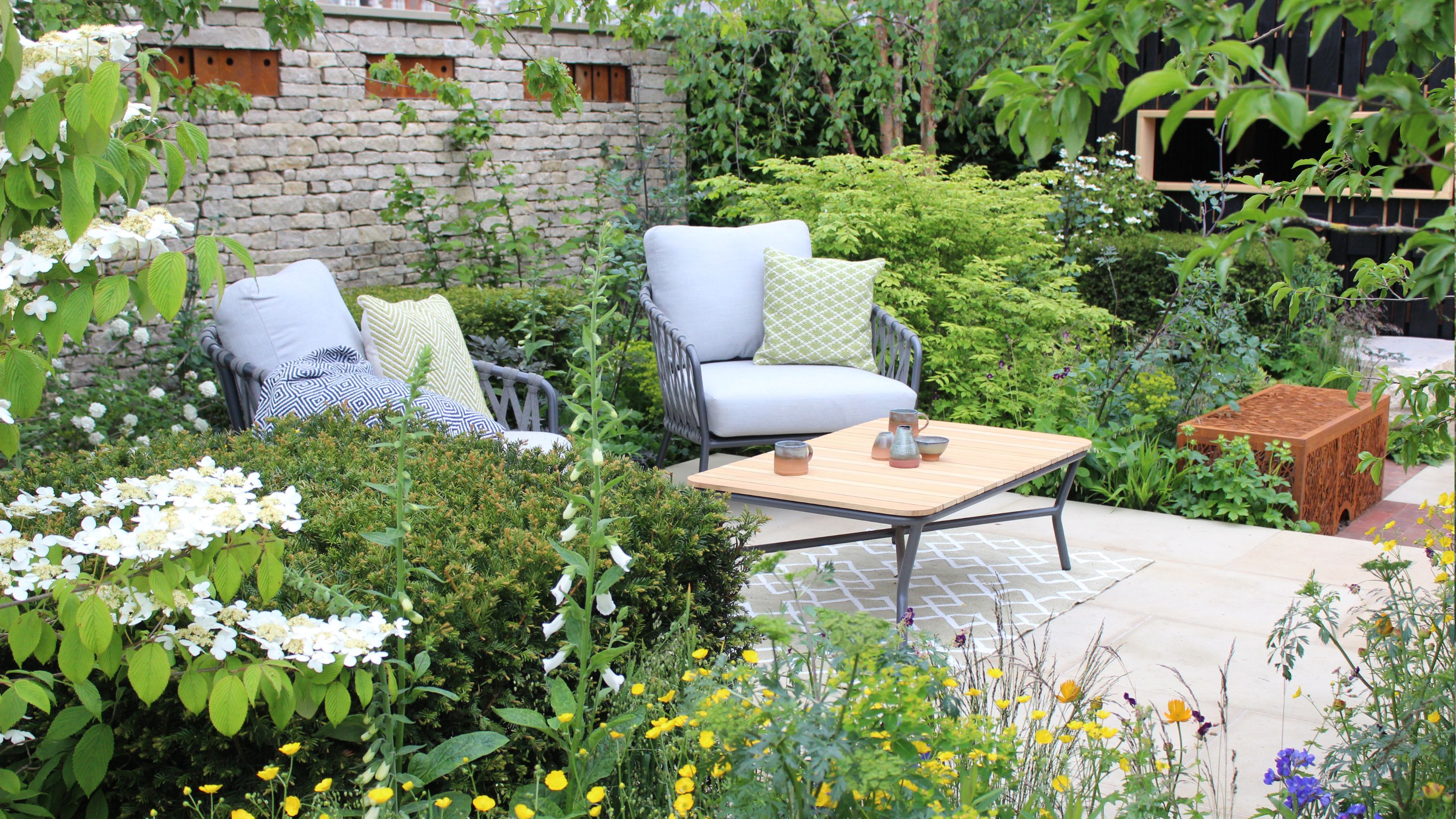
- The benefits
- How to practice mindful gardening
- 1. Breathe it in – and out
- 2. Start with a flower
- 3. Sow seeds
- 4. Keep it simple
- 5. Practice propagation
- 6. Start small
- 7. Love that lavender
- 8. Work out those weeds
- 9. Let grass grow
- 10. Grow things to eat
- 11. Learn to love leaves
- 12. Build a bug hotel
- FAQs
- Meet the experts
Stepping into a garden can almost instantly help to soothe anxiety, calm a busy mind and ease tension. But what if we want to take this blissful experience a step further and practice ‘mindful gardening’? What does mindful gardening mean – and involve?
Wellbeing garden ideas are a great place to start, but mindful gardening is more about the state in which you garden than your garden itself. 'Mindfulness is simply being aware and in a state of alert attention that allows the mind to go quiet,' says Holly Farrell, RHS Wisley-trained horticulturist and author of Gardening For Mindfulness (RHS/Hachette Books, available on Amazon). 'Put simply, mindfulness is paying attention.'
When ‘mindfulness’ is applied to gardening, it’s been found to improve mental and physical health. Research published in the Environmental Science & Technology Journal, an American publication, found viewing scenes of nature reduces heart rate and blood pressure. Studies were carried out on people who have been through acute mental distress.
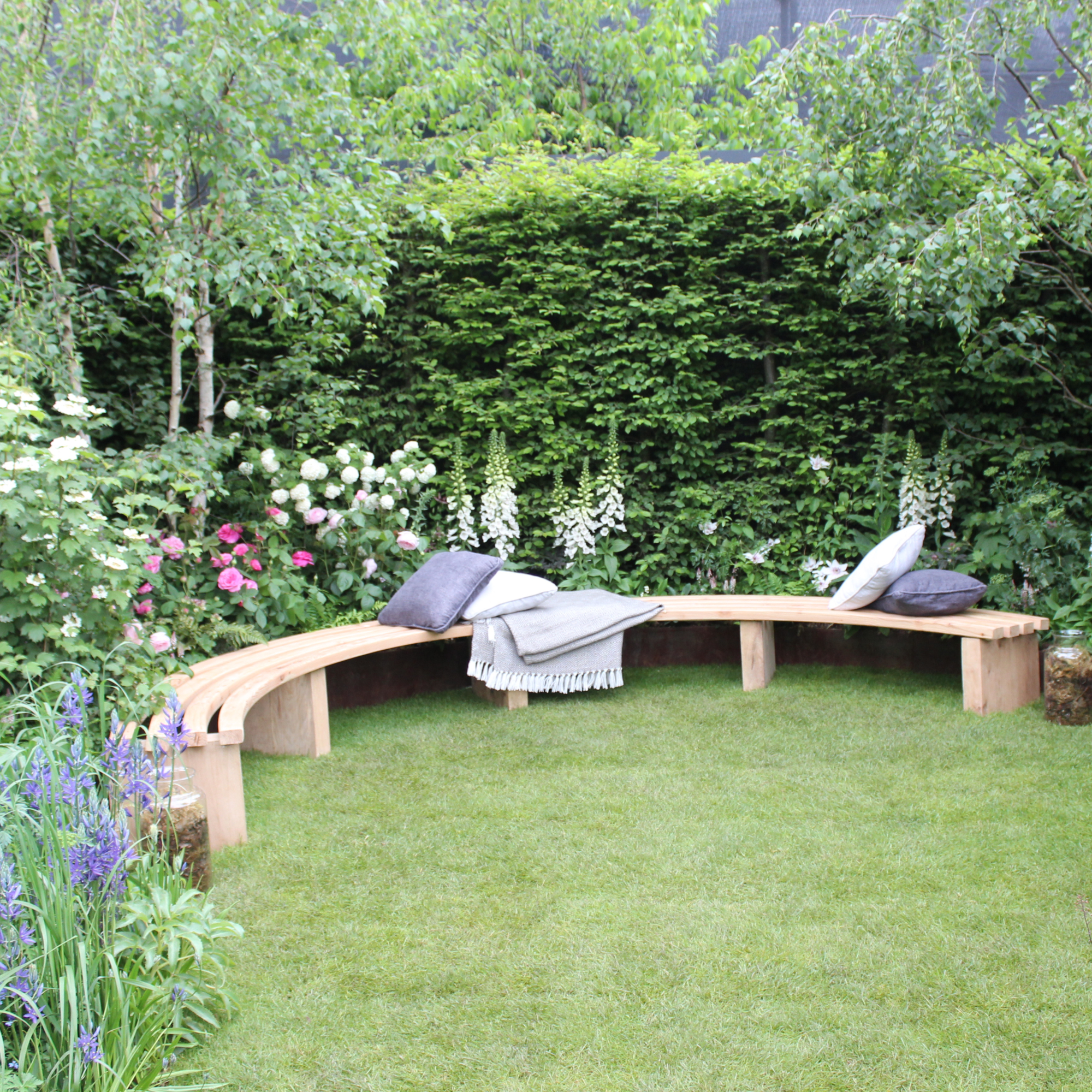
People who garden daily have wellbeing scores 6.6 per cent higher and stress levels 4.2 per cent lower than those who don’t garden at all, according to a survey undertaken by the RHS in 2021.
Scientists and researchers are now actively involved in researching the benefits of what’s known as ‘therapeutic horticulture’. The RHS is undertaking research in collaboration with the University of Surrey and the University of Sheffield to better understand how to maximise the health benefits of gardening, including practising mindfulness, and exploring the effects of colour and scent on stress and wellbeing in the garden.
A mindful approach to gardening is sure to increase the already clear wellbeing benefits associated with gardening. No wonder mindful gardening is becoming one of the most popular garden ideas this year.
What is mindful gardening?
Mindful gardening is all about being present in your garden space, says horticulturalist, broadcaster and author of The Joy of Gardening: The Every Day Zen of Mowing the Lawn, Ellen Mary. 'Rather than rushing to sow seeds or pull up weeds, it's about taking some time to really be in the moment of each gardening activity. This helps to clear the mind, relax the body and soothe the soul.'
Sign up to our newsletter for style inspiration, real homes, project and garden advice and shopping know-how
Holly explains that there are two distinctive ways to practice mindful gardening; allowing yourself to simply be in silence in your green space, focusing your mind and on your breath as it moves in and out of your body, or active mindfulness, when you ‘tether’ your senses to a particular task, such as smelling the grass as you mow it.”
What are the benefits of mindful gardening?
Practising mindful gardening teaches us how to focus on one task at a time, how to be patient, how observation is calming and gives us that all-important connection to the natural environment for health and wellness says Ellen.
'It’s a great way to put a pause on all the stress and busy-ness of our daily lives, giving us the opportunity to focus on the task, however small or big, the chance to nurture another living thing, from seed to shoot and onwards,' she adds.
Active mindful gardening also gives us the opportunity to be physically active and get our bodies moving.
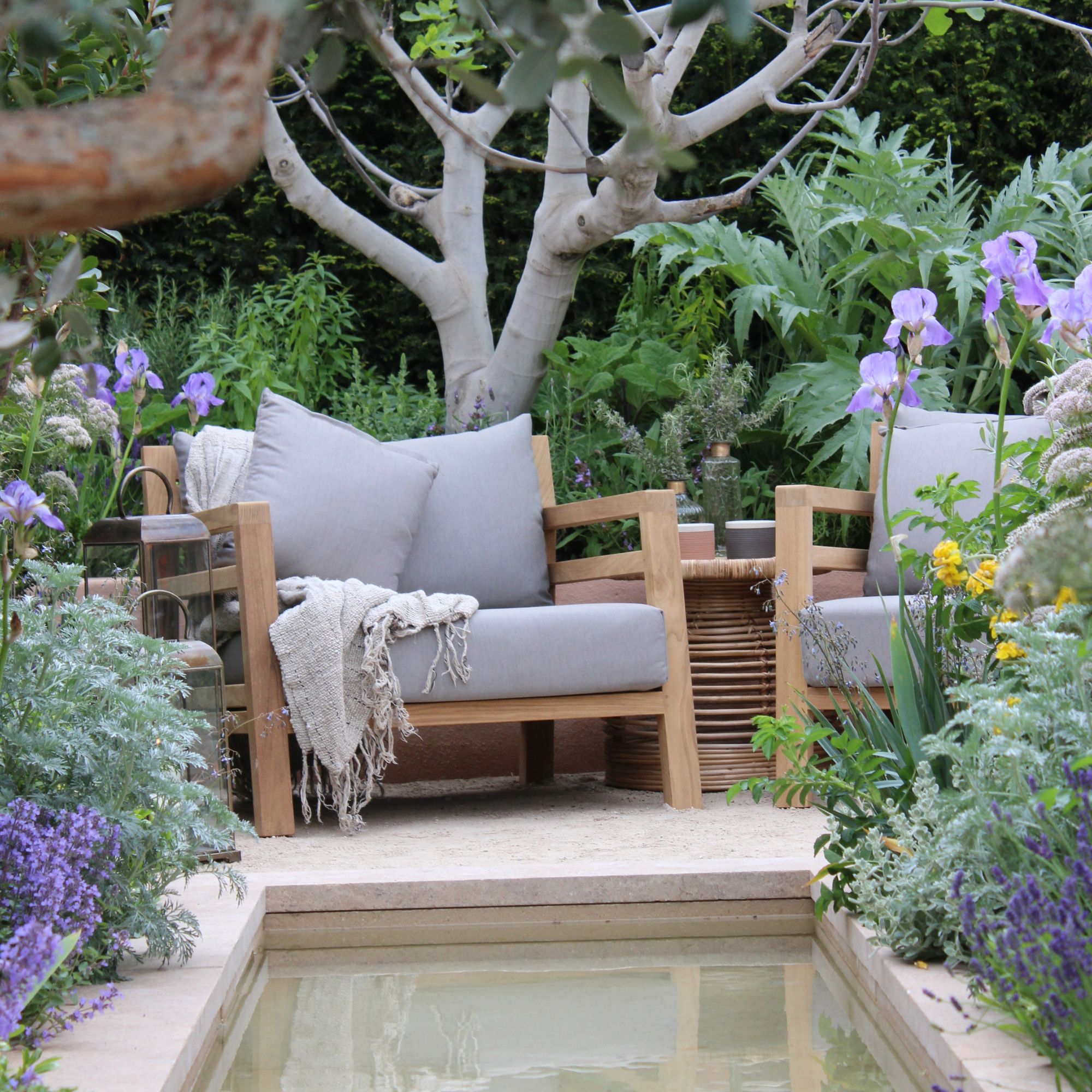
'The point is, when gardening, we cannot do more than one thing at a time,' says Freddie Watson Stubbs, learning and technology officer at gardening for health charity, Thrive. 'Our lives can take a pause for those few moments - or however long you are in the garden - and we can use the chance to restore our own balance, to take notice, to be part of the wider green space, and to give back to the natural world. Gardening is itself an opportunity to be mindful.'
Self-taught gardener and author of The Money-Saving Gardener: Create Your Dream Garden at a Fraction of the Cost (Dorling Kindersley) Anya Lautenbach believes that although gardening is supposed to be enjoyable, it can make us feel more anxious, because we’re too keen to strive for manicured perfection.
'We’ve got to stop seeing gardening as though you’ve got a goal, this is not a competition,' she says. 'You have to see the process of creating a garden as enjoyable. If you start growing or creating something and you don’t achieve it, this can make you feel like you’ve failed. Mindful gardening helps us to rid ourselves of unreasonable expectations.'
12 ways to practice mindful gardening
1. Breathe it in – and out
There are many ways to be mindful in the garden, but a good place to start when you step outside is to simply breathe. 'Stand or sit and take some deep breaths and on every exhale, relax muscles more and more,' says Ellen. 'Then start to engage your senses one at a time.'
Here’s what Ellen recommends: Look for five things you can see that catch your eye and observe them - what do they each look like, how are they moving, what are the colours/textures and how do these make you feel? Then find four things you can touch - gently stroke leaves or bark and think about the textures, and three things you can smell - has the grass been freshly cut or is there a rose in bloom?
Next, identify two things you can hear, focussing in on a sound so intently all other noise disappears into the background. And finally, pick one thing you can taste, safely try a lettuce leaf or a nasturtium, chewing slowly and intentionally.
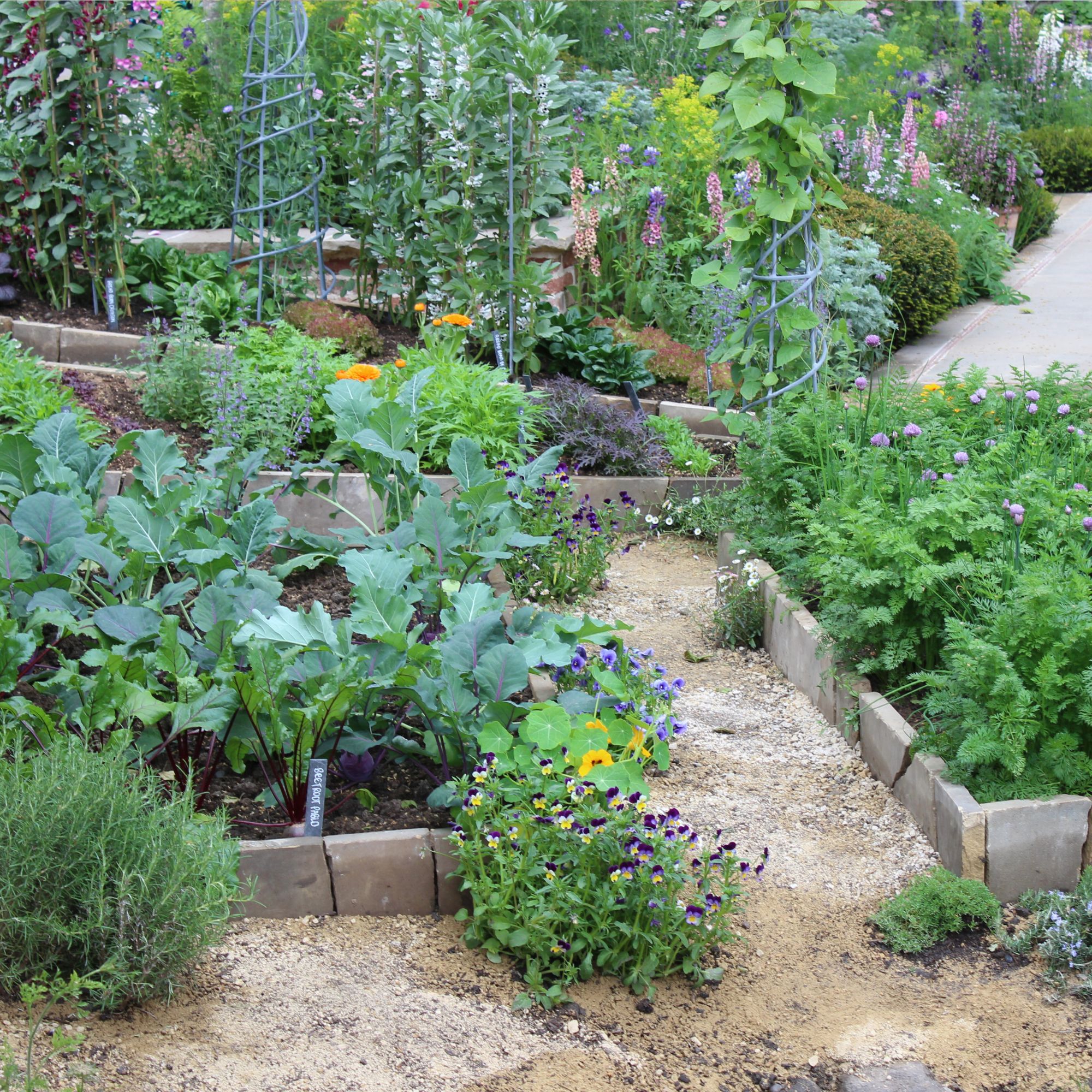
2. Start with a flower
Taking five minutes to really focus on a flower – ideally still on the plant – is an easy step towards mindful gardening. 'Find somewhere to sit and make yourself comfortable,' says Holly. 'Bring your attention solely on the flower and really notice it in all its glory, whatever it looks like. Take at least five minutes to do this. Use the sense of sight as an anchor for the mind, but if there are other senses – touching the petals, or enjoying the scent – it’s perfectly fine to focus on those too.'
3. Sow seeds
One of the best ways to practice mindful gardening, or to allow yourself the opportunity to take a break from other stresses, is to sow some seeds, says Freddie. 'This act in itself is one of hope, trusting that with the right care and attention the small seed you have placed in the compost, will grow into something wonderful offers us a real chance to believe in nature,' they say.
'Pick a seed or a few seeds that you are really interested in, even if you only have access to a windowsill or small balcony, many great crops and flowers can grow in small spaces.'
If you need advice on how to sow seeds mindfully, think about each individual seed, says Ellen: 'Look closely at the colour, texture, does the seed have a scent such as coriander or fenugreek and as the seed is dropped into the soil think about what that seed will become with nurturing it.'
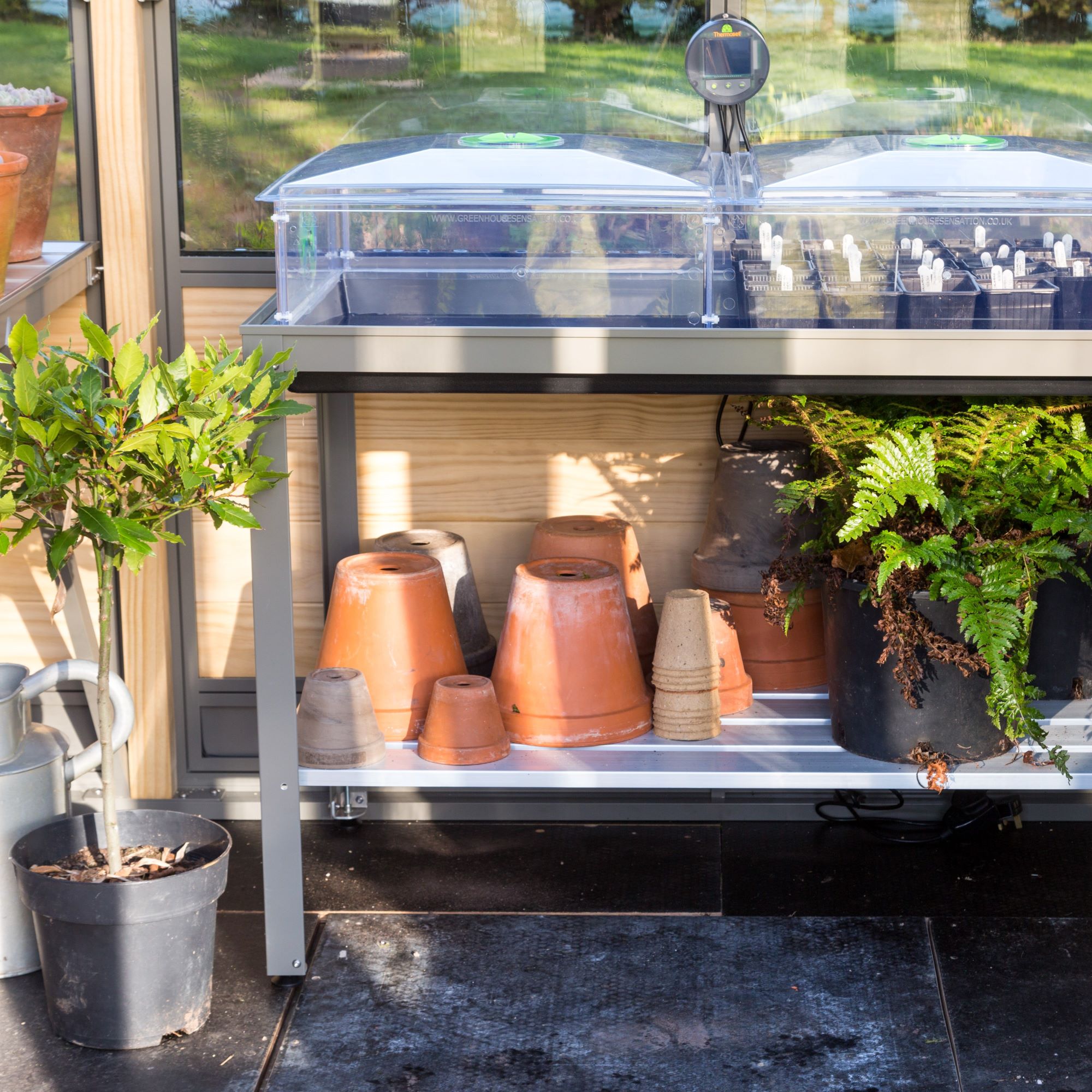
4. Keep it simple
Re-purposing and re-using what you already have to hand reduces stress – so you’re not worrying about the cost, the drive to the garden centre, the potential for polluting plastic waste – and helps you garden in a more mindful way.
'If you’re growing something like basil from seed all you need is a pot or a tray,' says Anya. 'The tray can even re-purposed from the tray you bring home fruit from the supermarket in. You don’t have to go racing off to the garden centre.'

5. Practice propagation
Self-taught gardener Anya loves to propagate seeds herself. She believes the act of taking new cuttings and making new plants is soothing, especially for people who are suffering loss in their lives.
'People think propagation is like rocket science, but it’s not,' she says. 'You can start with a pot of herbs, such as mint or basil or rosemary, you can buy it even from a supermarket, put it in a bigger pot and see how much it grows and spreads, even by itself.'
6. Start small
'We’ve got to focus on chunks of the garden that bring us joy – one step at a time – one pot of herbs, we can’t fix the whole world,' is another helpful insight from Anya.
'So start small, say with something like mint in a pot. It’s so easy to grow. As it begins to thrive and you see it and touch it and smell the leaves, your brain will release mood-improving endorphins.'
Creating a small herb garden can be just as rewarding as jumping into a full vegetable patch.
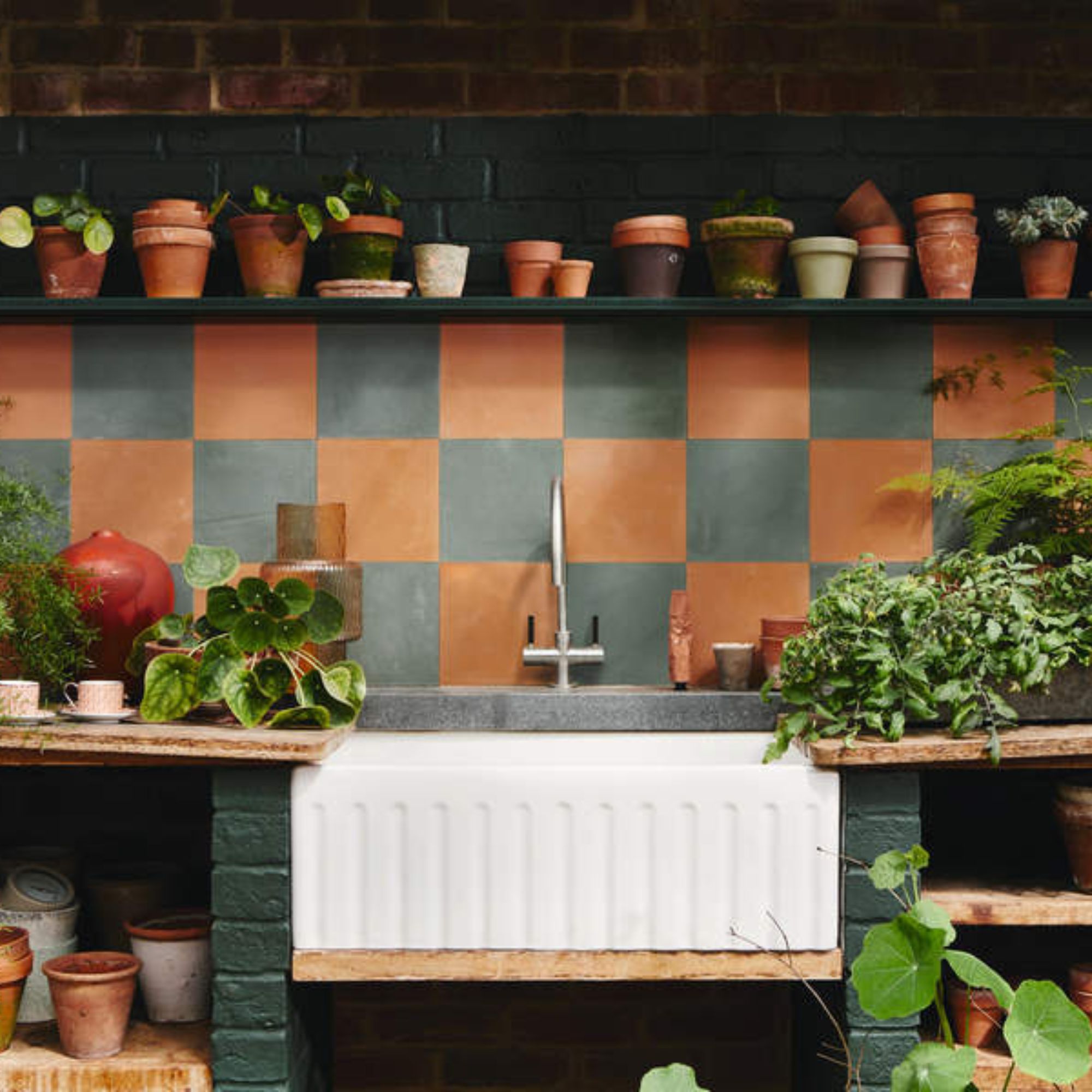
7. Love that lavender
Only plant the plants you love, advises Anya. 'I always advise people to start and grow a plant that brings happy memories,' she says. 'That might be growing lavender that evokes memories from a holiday in Italy. Or something grandad used to grow, such as sweet peas.
'Grow something like that as a happy memory, and every time you see it when you leave the house, you will smile.'
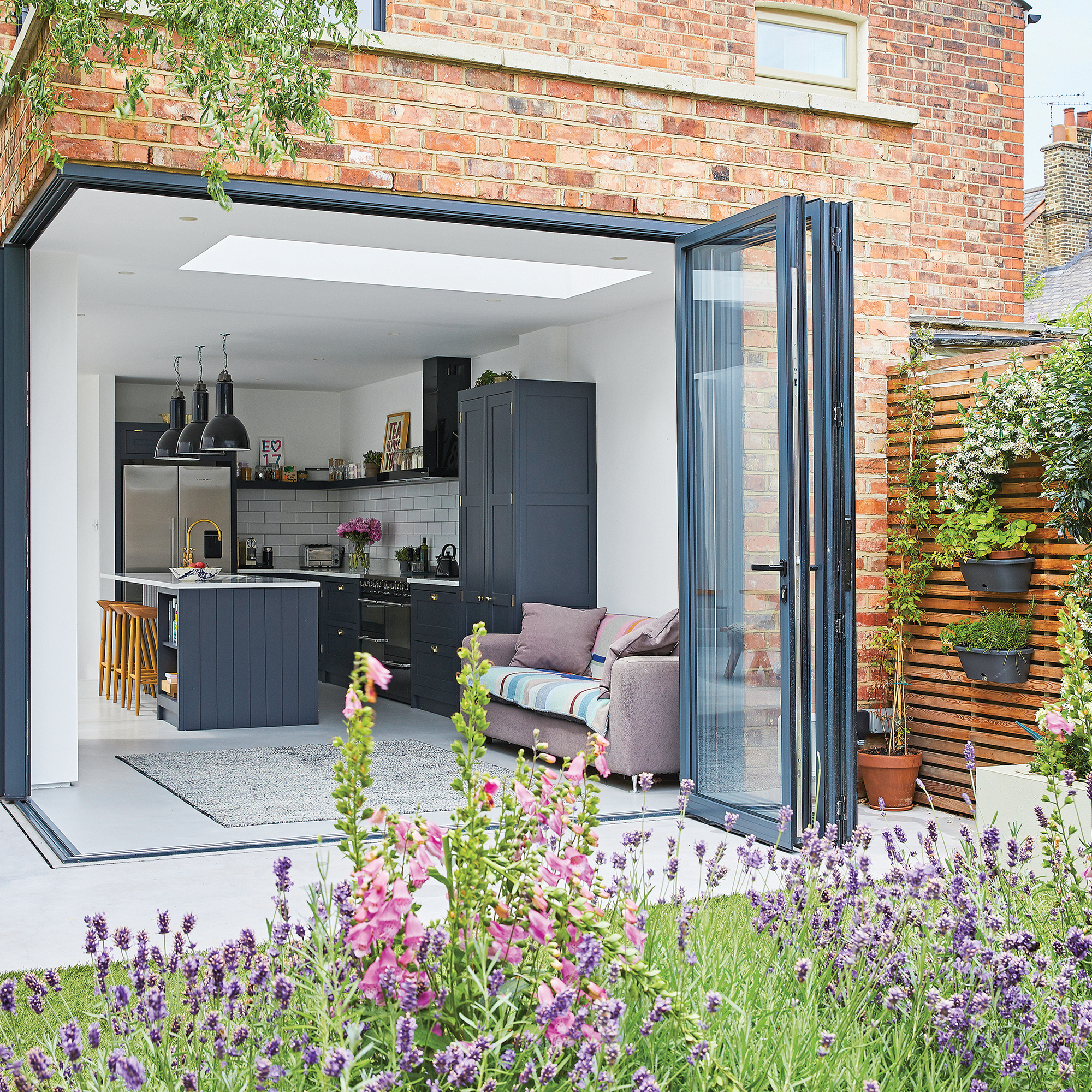
8. Work out those weeds
'When weeding, weed out negative thoughts at the same time,' says Ellen. 'For each weed removed attach it to a negative thought. As you compost the weed throw the negative thought with it, and replace that space in your mind with a positive thought.'
9. Let grass grow
'When it comes to my lawn, I’ve learned to just let things be,' says Anya. 'I’ve turned mowing the grass into a mindful task. – it is a bit of a pain – I change the mindset, instead of being a chore, I tell myself that I’m going to see the lovely lines, smell the grass, and then make a cup of tea, take my shoes and socks off and walk around the grass barefoot.'
So yes investing in the best lawn mower can double as an act of self-care.
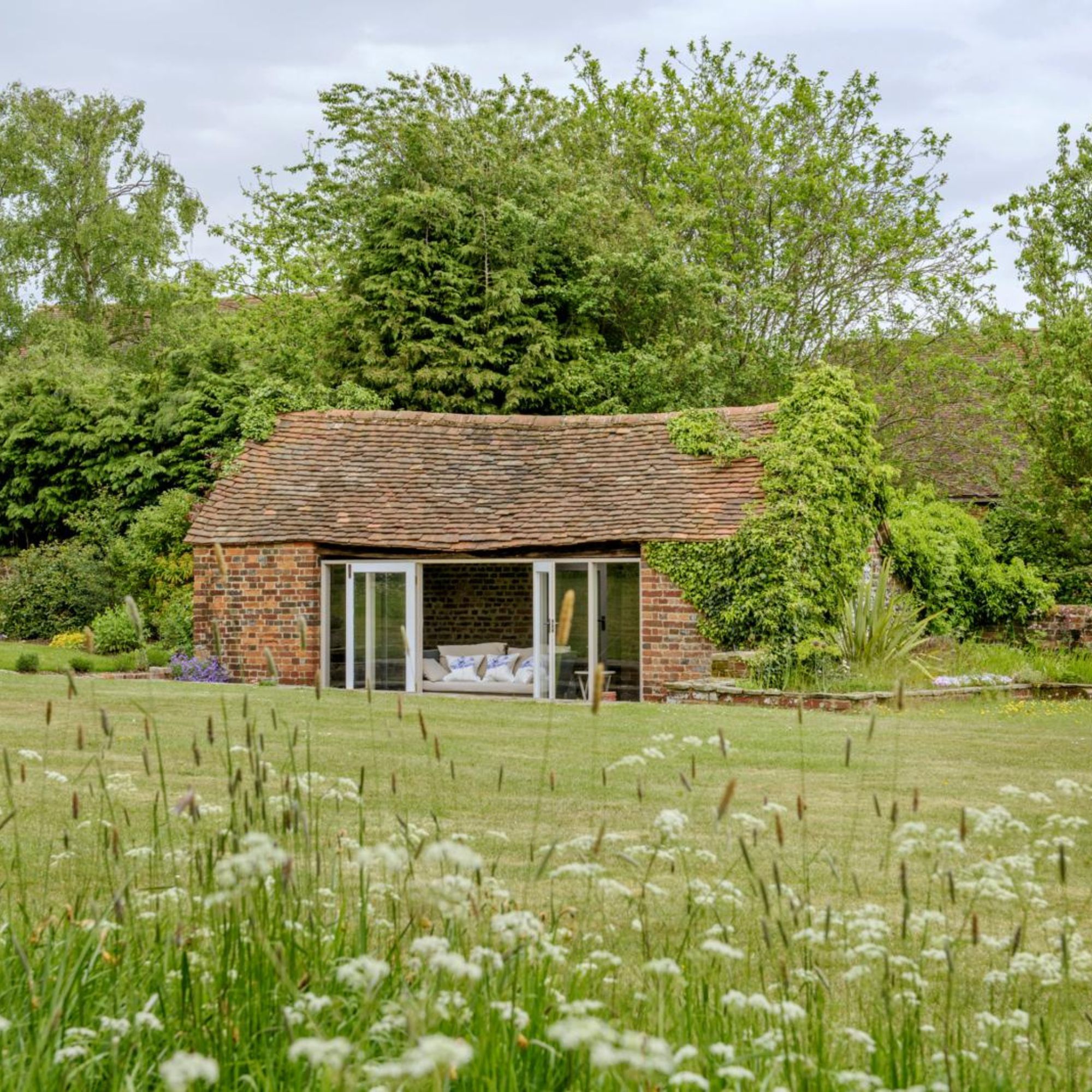
10. Grow things to eat
Holly reminds us that learning how to grow carrots, cucumbers and other home-grown vegetables not only takes the mindful gardener on a steady, natural journey from seed to cropping but encourages towards mindful eating, good for our health.
'We do not want to wolf it down, we prefer to savour it because we put time and effort into growing it.'
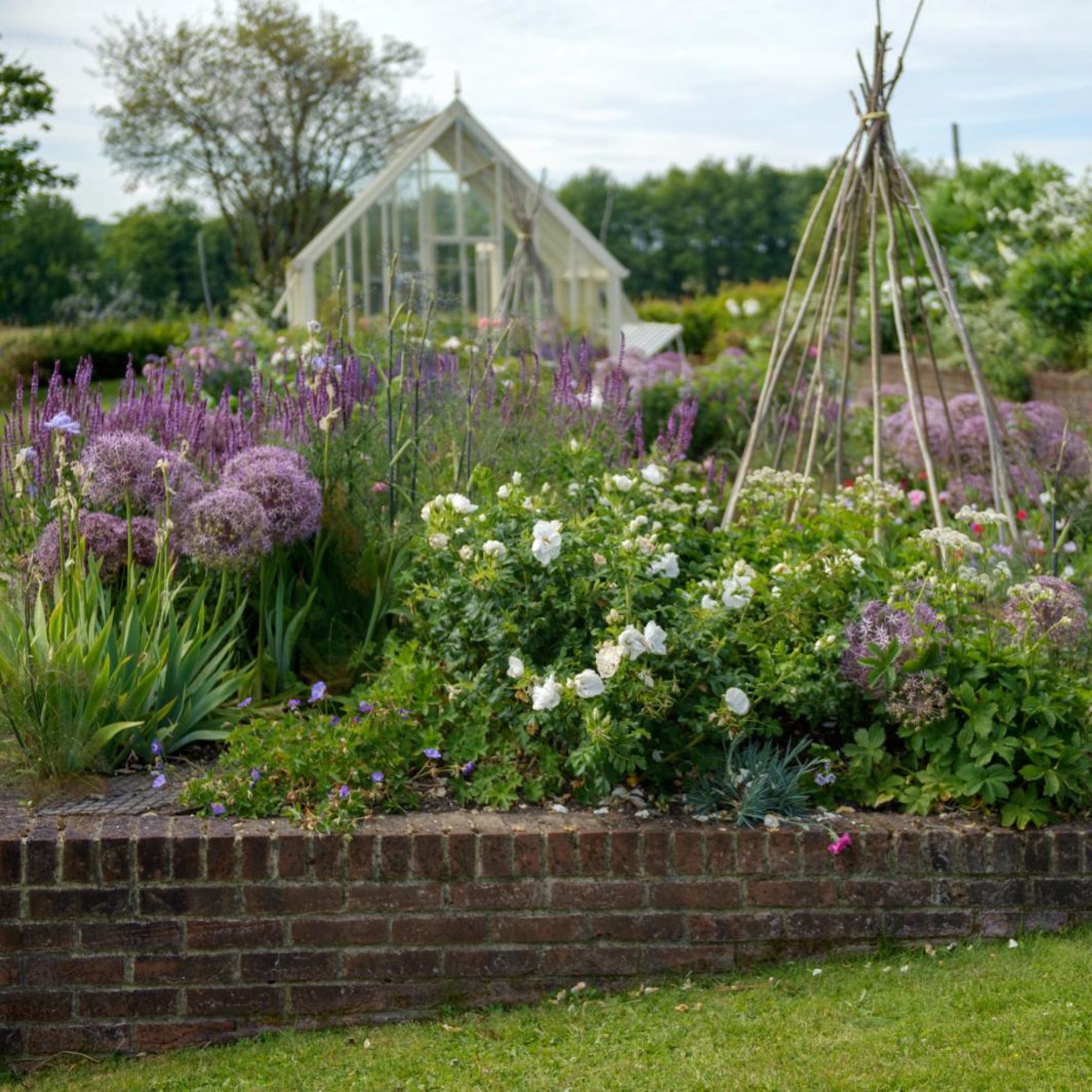
11. Learn to love leaves
'Sweeping or raking up the autumn leaves is a job that needs patience, and acceptance of forces beyond our control,' says Holly.
'But fallen leaves are an opportunity to rekindle our inner child.” She recommends trying to catch leaves as they fall – time-consuming, but fun, and demanding complete focus on the present. Or gathering fallen leaves to make leaf mould, a pure form of compost that will improve your soil, giving something back to your garden and contributing to circular cultivation.'
12. Build a bug hotel
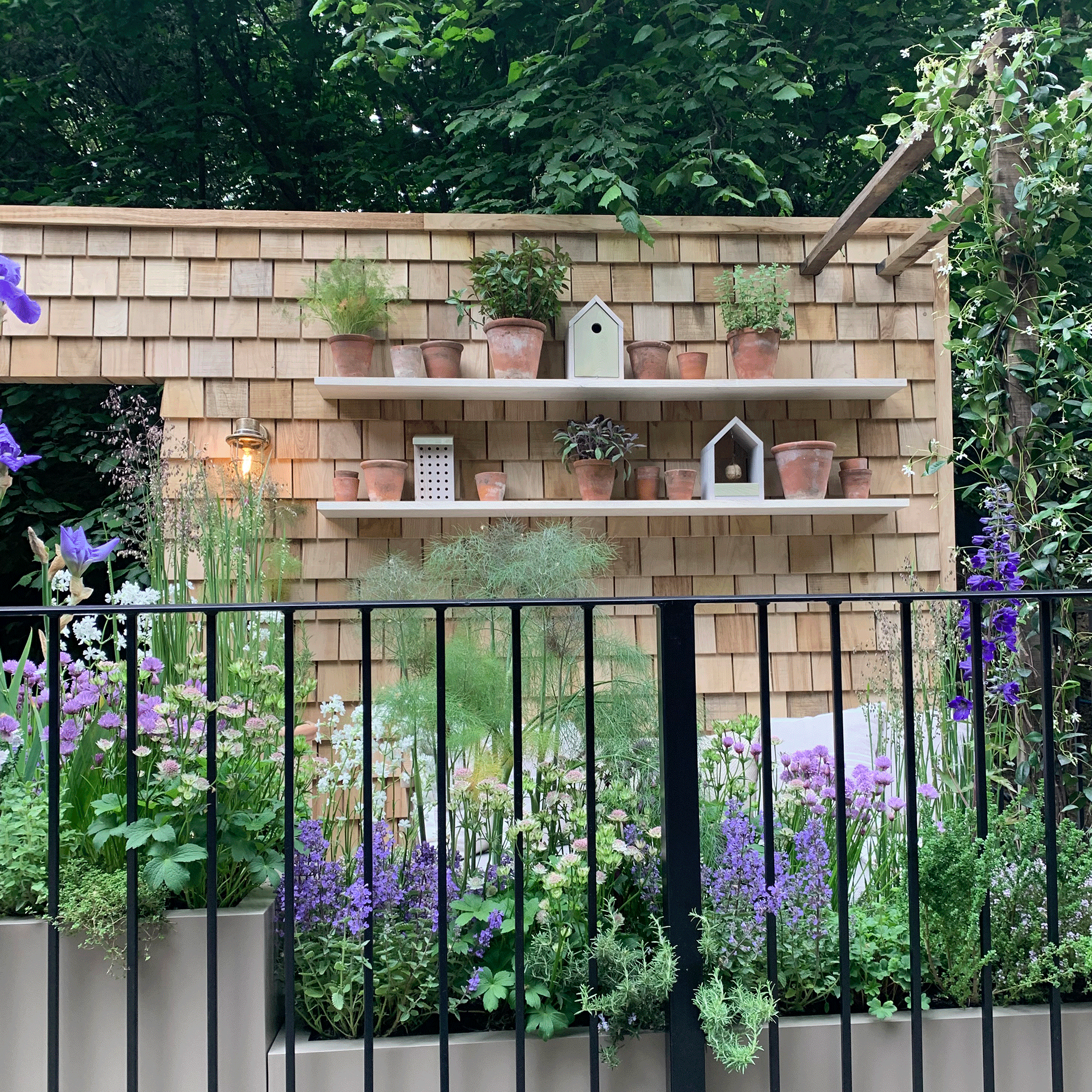
A really positive mindful action to take in the garden is including wildlife garden ideas and maybe making an insect or bug hotel, using any natural materials you have. 'Considering the wider ecosystem and the insects you share the space with will allow you to consider your own role within nature,' says Freddie.
'By creating a new home for the bugs, you will have the opportunity to observe them. Focusing on the small details in the garden can give a real sense of peace, and slow down your own mind for a few moments.'
FAQs
Can gardening be meditation?
'Meditation is a tool, an exercise, that can be used to practice mindfulness, but it does not define it,' says Holly. However, the passive, relaxed kind of mindful gardening relies on gently achieving a Zen-like state of calm and relaxation in your own mind and body within your garden, so this kind of gardening can definitely be a form of mediation.
Ellen argues that 'often very naturally gardening can be a process of meditation as we switch off from the demands of busy life.' She adds that when we’re engaged in gardening we’re often subconsciously clearing out the ‘noise’ of everyday life in our minds.
Gardening can clear space for reflection and gratitude, allowing us to explore how we are feeling. 'I like to set time aside in the garden to meditate specifically as being in a natural setting amplifies the meditation practice,' says Ellen. 'Listening to birds, the rustle of leaves and grasses, are all helpful when meditating.'
How do you make a mindful garden?
Creating a garden – however small, even on a balcony – that feels like stepping into a sanctuary, a safe and relaxing space to reflect and take time out, is key to mindful gardening. 'Biodiversity is key as we know that a biodiverse space increases wellness,' says Ellen. 'Bird boxes or other nesting spaces, a range of plants for pollinators, a water feature and a hedgehog home can help.'
She also recommends adding trees and shrubs to provide texture, height and privacy. Grasses for movement and a planting scheme of green, white, pinks and lilacs will help to provide a calming space. When choosing plants think about the textures and fragrances that are soothing to you. 'Mostly, your garden should be whatever makes you feel happy to step into it and relax your mind,' adds Ellen.
Meet the experts
Anya Lautenbach is a self-taught gardener passionate about sustainability and wildlife. She created her own garden in a response to family grief, by propagating plants and growing them from seeds. She now has almost 60,000 TikTok followers, 700,000 followers on Facebook and 534,000 followers on Instagram. As a neurodivergent person diagnosed with ADHD, Anya says social media allows her to use her voice and share topics close to her heart, such as gardening tips and teaching people how to garden in harmony with nature.
Joining Thrive, a gardening for health charity, in 2018, Freddie is a qualified teacher, assessor and IQA (internal quality assurance) expert with a background in further education, higher education, community development and youth work.
What Freddie particularly enjoys and values about their role at Thrive, which involves teaching others and managing the online learning platform, is meeting and working with people who share a common goal to help others and affect change. This includes supporting those who wish to access and enjoy their own garden.
A garden lover and plant addict since she was a child, with an extensive practical knowledge, especially in organic gardening methods, Ellen Mary is trained in horticulture, social and therapeutic horticulture, NLP (neuro-linguistic programming), reiki, hypnotherapy and wellness coaching.
Her work is dedicated to promoting the wellbeing benefits of gardening, plants and the natural world. The founder of People Plants Wellbeing which provides nature therapy, integrative wellness & spiritual healing, Ellen has written two books, The Joy of Gardening: The Every Day Zen of Mowing the Lawn, and How to Grow a Garden: A Beginner's Guide to Creating a Thriving Outdoor Space, both published by Greenfinch.
As well as appearing as a regular radio and TV expert, she’s also a co-host of The Plant Based podcast with ‘Mr Plant Geek’, Michael Perry.

Jayne Dowle is an award-winning freelance gardening, homes and property writer who writes about everything from swimming ponds to skyscraper apartments, for publications including Sunday Times Home, Times Bricks & Mortar, Grand Designs, House Beautiful and The Spectator. Awarded the Garden Journalist of the Year accolade at the Property Press Awards in 2021, she has a degree in English Language and Literature from the University of Oxford and a lifelong love of homes, interiors and gardens.